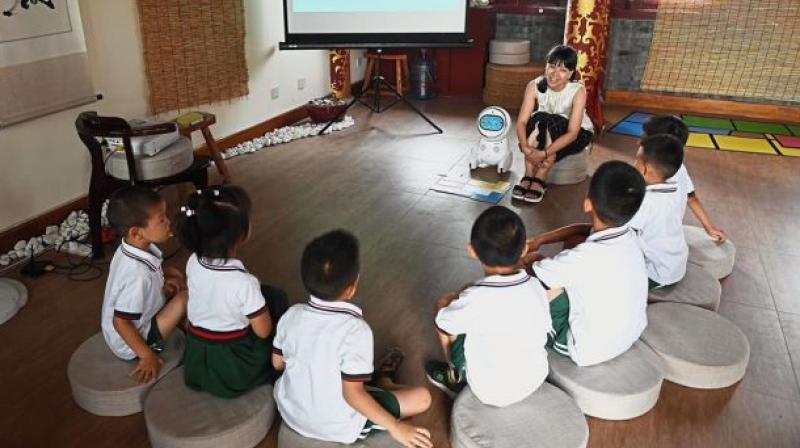Classroom friendships can neutralise effects of harsh parenting: study
Angry, threatening and highly critical parenting is more likely to result in children with defiant, non-compliant and revengeful behaviour.

Los Angeles: Having warm teachers and friends in kindergarten can prevent children of highly critical parents from exhibiting argumentative and defiant behaviours, a study has found.
Angry, threatening and highly critical parenting is more likely to result in children with defiant, non-compliant and revengeful behaviour that spills over to adulthood and impacts relationships with all authority figures.
Researchers at University of California, San Francisco (UCSF) in the US confirmed this link, and found that kindergarten may provide a unique opportunity for these children to retool negative behaviour.
In the study published in the journal Development and Psychopathology, researchers looked at 338 kindergartners in six public schools.
They found that 10 per cent of the children met the criteria for oppositional defiant disorder (ODD). Among this group, 71 per cent had been exposed to high levels of harsh parenting, versus 29 per cent who had been raised with lower levels of harsh parenting.
ODD is characterised by angry and irritable mood, argumentative and defiant behaviour, and spiteful or vindictive outbursts, according to the Diagnostic and Statistical Manual of Mental Disorders.
In young children, the condition is linked with an elevated risk in adolescence and adulthood for antisocial behaviour, anxiety, depression, substance abuse, criminal offenses and incarceration, the study authors noted.
The researchers discovered that when harshly parented children were liked and accepted by their classmates -- according to interviews with their peers and teacher reports -- they exhibited fewer undesirable traits.
This subset was found to have 64 per cent lower symptoms of ODD than those who were not liked.
"Acceptance within one's peer group creates opportunities for socialisation and a sense of belonging that acts as a buffer against the impact of harsh parenting," said Danielle Roubinov, an assistant professor at UCSF.
"Healthy peer relationships may have an attenuating influence by modelling or providing children with feedback about the inappropriate nature of oppositional behaviours acquired from harsh interactions with parents," he said.
Researchers also found that a warm relationship with classroom teachers mitigated adverse behaviour in these harshly parented kindergartners.
Symptoms of ODD were 29 per cent lower in this group if the teacher-student relationship was close, according to student reports.
This confirms previous studies by other researchers that reported that positive teacher-student relationships were linked with less aggressive behaviour in children.
"The teacher-child relationship has frequently been framed in terms of extended attachment theory, and a high-quality teacher-child relationship may function in a manner analogous to the secure base of a child's primary attachment, the parent," said Roubinov.
"Warm relationships may improve children's self-regulation, positive emotionality and responsiveness to warnings about oppositional behaviour," she said.
The study suggests that treating ODD outside of the family environment may be helpful.
Harsh parenting was assessed according to 18 statements, which the parents were instructed to rank on a seven-point scale ranging from "extremely true" to "extremely untrue."
Statements centred on parents' discipline strategies, such as "I believe physical punishment to be the best way of disciplining" and "I do not allow my child to question my decisions."
Oppositional defiant disorder was assessed according to parent and teacher questionnaires that asked them to rank the frequency with which the child argued with adults and peers, blamed others for their mistakes and had temper tantrums.
The children's own perceptions of their behaviour were also included in the assessment.

